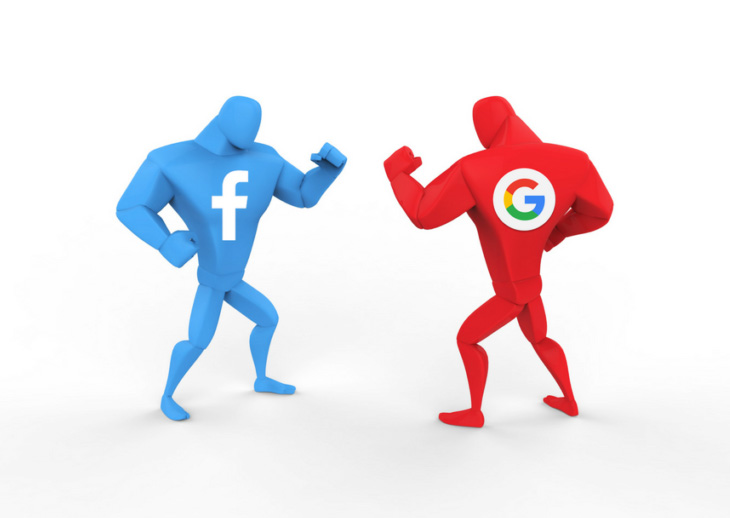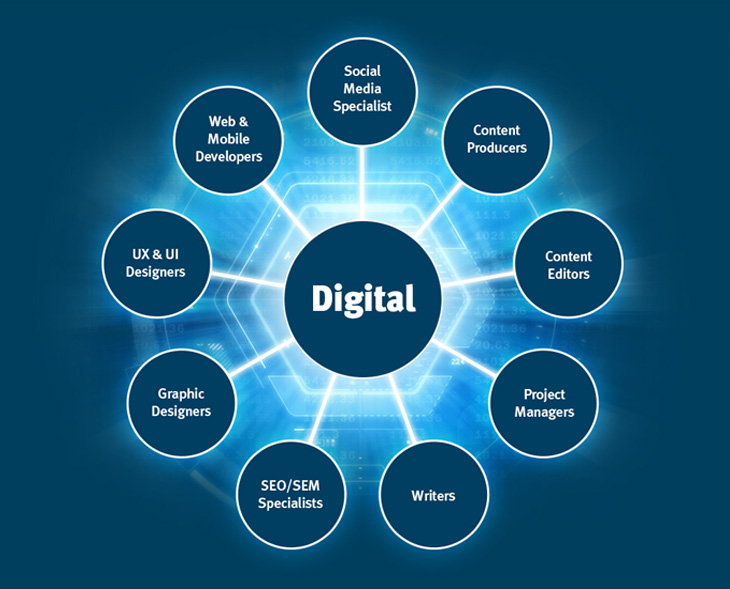Importance of Good Communication With Your Digital Marketing Agency
At a glance:
- Builds trust, fosters collaboration, and ensures alignment with business objectives.
- Poor communication can lead to wasted resources, misaligned strategies, and missed chances for growth.
- A communication strategy that prioritises transparency and regular feedback contributes to long-term success.
Effective communication is the cornerstone of any successful digital marketing project. Whether it’s a quick update on a campaign, a question about strategy, or critical feedback on a design concept, timely and clear communication is vital. Both the digital marketing agency and the client must work together to ensure that the flow of information is consistent and efficient. Without this, projects can experience delays, misalignments in expectations, and missed opportunities for growth.
Importance of Clear and Timely Communication
In the dynamic world of digital marketing, clear and timely communication is essential for meeting deadlines, staying on track with campaigns, and keeping both parties aligned. The ability to promptly address issues or questions ensures that projects move forward smoothly. When communication is delayed, it can create bottlenecks, disrupt schedules, and result in missed deadlines.
Digital marketing agencies like Anxious To Matter rely heavily on client feedback to adjust strategies and respond to real-time changes in the marketplace. A lapse in communication can mean missing out on critical opportunities, like capitalising on a trending topic or adjusting to a sudden shift in consumer behaviour.
Why Communication is Key
One of the most immediate benefits of strong communication is avoiding project delays due to a lack of information. For example, if a marketing campaign requires two-factor authentication (2FA) for a social media account, but the client fails to provide the necessary verification code, the project can’t move forward. Even small issues like these can cause significant delays if not addressed quickly.
Similarly, missed or delayed responses can result in lost opportunities for optimisation or the launch of key marketing initiatives. If an agency doesn’t receive timely approval on a paid ad or content update, it could miss a crucial engagement window, thus reducing the campaign’s effectiveness.
Personalised Communication Approach
A personalised approach to communication, such as texting for quick updates or asking simple questions via messaging platforms, is essential in today’s fast-paced work environment. These immediate response channels allow for speedier decision-making and prevent bottlenecks that can occur when relying solely on formal emails or scheduled meetings.
When communication is delayed, deadlines are missed, leading to slower progress and a cascading effect on project timelines. Quick responses ensure that campaigns stay on track, allowing agencies to move forward without waiting on small but essential pieces of information. In contrast, delays in communication can have a snowball effect, pushing back project milestones and slowing down overall progress.
Managing Multiple Projects Efficiently
Digital marketing agencies often manage multiple projects simultaneously, which requires seamless task coordination and communication. Juggling multiple projects while waiting for feedback from clients can be a challenge, especially when consistent communication is lacking. Each delay impacts not only the project in question but also the agency’s ability to manage other projects effectively.
Maintaining project momentum is crucial for meeting timelines and ensuring that campaigns are rolled out in line with agreed strategies. Slowed communication not only hampers progress but can also lead to a loss of motivation among team members, resulting in projects that fall short of their full potential.
Working Around the Clock
In today’s global and digital economy, responsiveness is key. Agencies are often working to tight deadlines and across time zones, which requires constant communication to ensure timely delivery. When client responses are delayed, it creates challenges for the agency, often causing unnecessary stress and last-minute rushes to meet deadlines. Both the agency and the client suffer when communication isn’t prioritised, as it leads to missed opportunities and diminished results.
Despite these challenges, digital marketing agencies are committed to delivering quality work. However, without the necessary client input, even the best digital agency cannot produce the desired results on time. Delayed responses create unnecessary obstacles, but an open and responsive communication strategy ensures smooth project delivery.
Client Input and Feedback
One of the most critical aspects of successful digital marketing campaigns is client feedback. Feedback is necessary to guide the creative process, refine strategies, and produce content that aligns with the client’s brand vision. Communication directly influences website design, marketing outcomes, and campaign effectiveness.
When communication lags, the quality of the final product can suffer. For example, slow feedback on a website design can lead to multiple rounds of revisions and delays in the website launch. Similarly, without timely approval of marketing content, campaigns may not go live when planned, missing key opportunities to engage with the target audience.
Mutual Success
The success of a digital marketing project relies on the strength of the partnership between the agency and the client. A strong communication strategy ensures that both parties are aligned on the project’s goals, deadlines, and expectations. When both agency and client are open and engaged, they can work together to overcome obstacles, adjust strategies as needed, and celebrate successes together.
By maintaining open dialogue, agencies and clients can ensure that they are continuously working toward the same objectives. Regular updates and open discussions about performance, strategies, and adjustments lead to mutual success, allowing both parties to grow and thrive.
Risks of Poor Communication: Missed Opportunities
While good communication strengthens your relationship with your digital marketing agency, poor communication can have detrimental effects. A lack of communication or inconsistent updates can lead to serious issues, including missed opportunities, wasted resources, and damaged trust.
Misaligned Goals and Expectations
When communication is sporadic or unclear, agencies might work towards goals that aren’t in line with your business objectives. For example, if your agency isn’t informed about a shift in your product strategy or target market, they may continue running campaigns aimed at the wrong audience. This misalignment wastes both time and money and can result in missed opportunities for growth.
On the client side, poor communication can lead to unrealistic expectations. Without regular updates, clients may not fully understand what the agency is doing or why certain decisions are being made. This can result in dissatisfaction and frustration, even if the agency is delivering valuable work behind the scenes.
Wasted Resources
Poor communication can lead to inefficient resource use. For example, if an agency is not updated on changes in its budget or marketing priorities, it may continue investing in campaigns that no longer align with its goals. This can waste both financial resources and valuable time, which could have been redirected towards more impactful initiatives.
Furthermore, a lack of communication about campaign performance can result in missed chances to optimise strategies. Without ongoing dialogue, opportunities to refine messaging, adjust targeting, or shift spending to better-performing channels might go unnoticed, causing campaigns to underperform.
Missed Opportunities for Growth
When communication breaks down, both the agency and the client miss out on valuable opportunities. For example, the agency may be unaware of new developments in your business, such as the launch of a new product or entry into a new market. Without this information, the agency can’t develop targeted strategies to maximise these opportunities.
Similarly, without regular feedback and collaboration, your agency might miss critical insights that could enhance campaign performance. For instance, client feedback on customer behaviour or market trends can help an agency refine its approach and improve results. When this dialogue is absent, potential growth opportunities slip through the cracks.
Strategies to Enhance Client Communication with Your Digital Marketing Agency
Given the importance of good communication, it’s essential to develop clear and structured communication strategies that foster collaboration, transparency, and trust. Here are several ways to enhance communication with your digital marketing agency:
Set Clear Expectations from the Start
From the outset, it’s important to establish clear expectations about how and when communication will occur. This includes setting up regular meetings, agreeing on reporting schedules, and establishing preferred communication methods (e.g., email, phone, video conferencing). It’s also helpful to outline which key metrics will be used to measure success, ensuring that both the agency and client are aligned on what matters most.
Defining expectations at the beginning of the relationship helps prevent misunderstandings later and ensures that both parties know what to expect from each other.
Schedule Regular Updates and Reports
Consistency is important in communication. Schedule regular updates to discuss the status of campaigns, review performance data, and make adjustments as necessary. These updates should be a two-way street: The agency should provide insights and recommendations, and the client should share feedback and any relevant business developments.
Regular communication fosters accountability, ensures transparency, and allows both parties to adapt strategies as new opportunities or challenges arise.
Use Digital Tools for Collaboration
Technology has made it easier than ever to stay connected with your digital marketing agency. Collaboration tools such as Slack, Trello, or Asana allow for real-time communication, while shared documents or cloud storage platforms facilitate easy access to important information.
These tools streamline communication and create a more efficient workflow, enabling agencies to respond quickly to client queries and make necessary updates to campaigns in real time.
Foster Open and Honest Dialogue
One hallmark of strong communication is honesty. Both agencies and clients should feel comfortable sharing their concerns, challenges, and even mistakes. By fostering a culture of openness, you can work together more effectively to find solutions and continuously improve your marketing efforts.
This also includes being open to feedback and willing to adapt when necessary. Digital marketing is dynamic, and strategies that worked yesterday might not be effective today. An honest dialogue allows both the agency and the client to stay agile and make the necessary adjustments to stay ahead.
Clear, timely, and consistent communication is fundamental to the success of any digital marketing project. When communication is strong, it fosters trust, avoids delays, and ensures that strategies align with business goals. Conversely, a lack of communication leads to missed opportunities, delayed projects, and lower-quality results.
Clients must remain responsive and engaged throughout the project. By investing in robust communication strategies, businesses and their digital marketing agencies can form strong partnerships, ultimately achieving shared goals and long-term success. If you need assistance developing better communication strategies for your projects, contact Anxious To Matter for tailored solutions.
Enquire Today
Melbourne Head Office
Suite 38 Level 7/570 St Kilda Rd, Melbourne VIC 3004, Australia
Phone: 1300 780 471
Email: [email protected]








